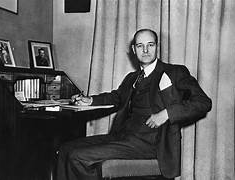The American foreign policy sage was driven as much by pessimism about the US as antipathy to the Soviet Union
George Kennan’s name once loomed large in the American imagination. Known as the quintessential foreign policy sage, he was revered for his insightful analysis of international relations, particularly his deep understanding of the Soviet Union. Kennan was the first U.S. director of policy planning after World War II and the architect of the U.S. strategy of containment, which sought to curb Soviet influence during the Cold War. His essays, especially the famous “Long Telegram” and the subsequent “X-Article,” reshaped the direction of American foreign policy.
Yet, despite his pivotal role in shaping U.S. strategy during the Cold War, Kennan’s career is often seen as one of decline. His prophetic warnings about the Soviet Union’s nature were later overshadowed by the aggressive confrontational policies of the Reagan administration, which Kennan had opposed. His belief that the U.S. should focus more on diplomacy and less on military intervention alienated him from policymakers in Washington, especially during the height of Cold War tensions. Although Kennan’s intellectual influence remained significant, his ideas were often marginalized by the political realities of the time.
Kennan’s complex relationship with the Soviet Union was marked by both admiration and profound skepticism. He understood the Soviet regime’s inherent contradictions, seeing it as a power driven by fear and insecurity but also recognizing the allure it held for its own people. His strategic vision was shaped by this nuanced view, which saw the Soviet Union not as an ideological enemy to be destroyed but as a rival that could be contained through careful diplomacy and restraint.
Despite his diplomatic successes, Kennan’s career did not follow a traditional upward trajectory. After his tenure as ambassador to Moscow in the 1950s and his work in various foreign policy positions, Kennan found himself increasingly out of step with the prevailing political climate in the U.S. His more cautious approach to the Soviet threat, advocating for understanding and dialogue over military escalation, was overshadowed by more hawkish voices that pushed for confrontation. This made him an outlier within the political establishment.
In his later years, Kennan reinvented himself as a diplomatic historian, earning a Pulitzer Prize for his writings on American foreign policy. His transition from a foreign policy maker to a historian allowed him to reflect on his earlier career, often with a sense of disillusionment. He viewed himself as a “loser” in the sense that his vision of a more diplomatic and measured U.S. foreign policy had been eclipsed by the more aggressive and confrontational strategies that defined much of the Cold War era.
Kennan’s legacy is paradoxical. He was both an insider and an outsider, a man of immense intellectual influence who never fully embraced the world he helped shape. He often described himself as an exile, disconnected from the political realities of his time, a representative of a bygone era of diplomatic reasoning that had given way to the more militaristic and ideological approaches of the postwar U.S. government. His career may have been marked by frustration and disappointment, but his intellectual contributions continue to be respected, even if they were not fully realized during his lifetime.
Ultimately, Kennan’s life and career reflect the tension between idealism and pragmatism, between a belief in diplomacy and the harsh realities of geopolitics. While his vision may not have prevailed, his insights into the complexities of U.S.-Soviet relations and the nature of power remain relevant, offering lessons that are still being learned today.

